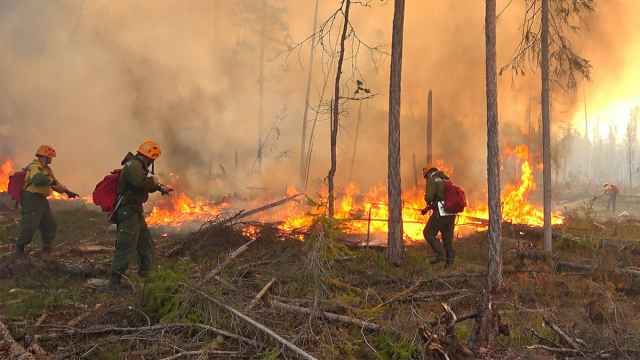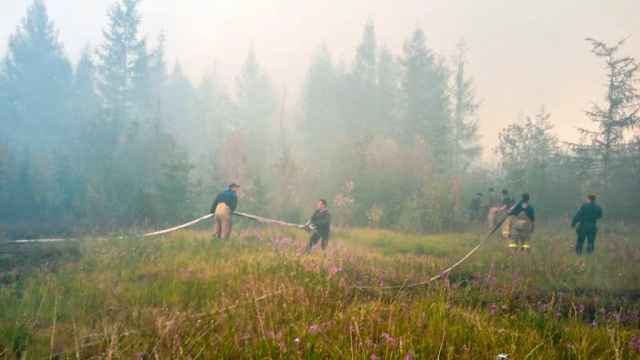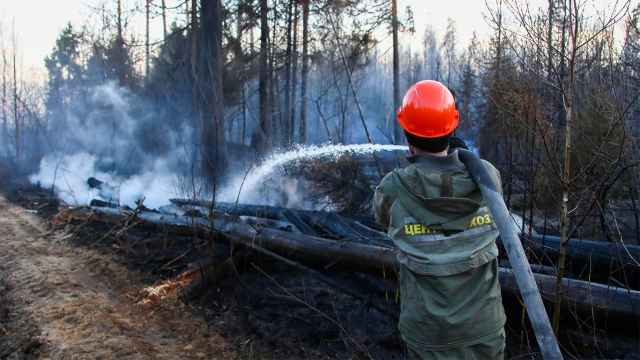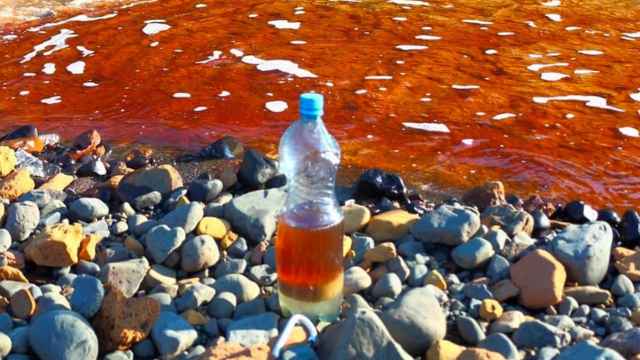Wildfires in Russia have burned across an area larger than the size of Greece so far in 2020, Greenpeace Russia said Monday as it criticized the authorities of inaction.
Using satellite data, Greenpeace Russia estimated that 19 million hectares (47 million acres) burned across Russia's forests, steppes and fields from January to mid-July. The country of Greece, by comparison, is more than 13 million hectares in size.
Forest fires — some caused by lightning and others by campfires along river banks — covered 10 million hectares, the environmental NGO said.
It called on Russian authorities to accelerate efforts on stopping toxic smoke haze from covering major cities in the region, including Yakutsk, Ugorsk and Sovetsky.
“This summer has already brought extreme heat waves, oil spills caused by thawing permafrost, and raging forest fires — what next before we finally act on climate?” Greenpeace Russia’s head of firefighting Grigory Kuksin said.
Russia's Federal Forestry Agency has identified 10.1 million hectares of wildfires raging across the country since the start of the year. More than half of the blazes were located in forests and over 90% burned in Siberia and the Russian Far East, it said.
Russian officials said Monday that more than 9,000 fires have destroyed 1.2 million hectares of forests.
Last year’s wildfires in Siberia burned across an area the size of Belgium at their peak and emitted the equivalent of Sweden’s total annual carbon dioxide emissions in one month alone.
Experts warn that this year’s blazes, some of which may be remnants from last summer which survived through a historically warm and dry winter, could become the most destructive in history.
Climate change is heating Russia at a rate more than twice the global average. The world’s fourth-largest greenhouse gas emitter with an economy heavily dependent on oil and gas, Russia has been slow to take steps to curb its carbon emissions.
A Message from The Moscow Times:
Dear readers,
We are facing unprecedented challenges. Russia's Prosecutor General's Office has designated The Moscow Times as an "undesirable" organization, criminalizing our work and putting our staff at risk of prosecution. This follows our earlier unjust labeling as a "foreign agent."
These actions are direct attempts to silence independent journalism in Russia. The authorities claim our work "discredits the decisions of the Russian leadership." We see things differently: we strive to provide accurate, unbiased reporting on Russia.
We, the journalists of The Moscow Times, refuse to be silenced. But to continue our work, we need your help.
Your support, no matter how small, makes a world of difference. If you can, please support us monthly starting from just $2. It's quick to set up, and every contribution makes a significant impact.
By supporting The Moscow Times, you're defending open, independent journalism in the face of repression. Thank you for standing with us.
Remind me later.






